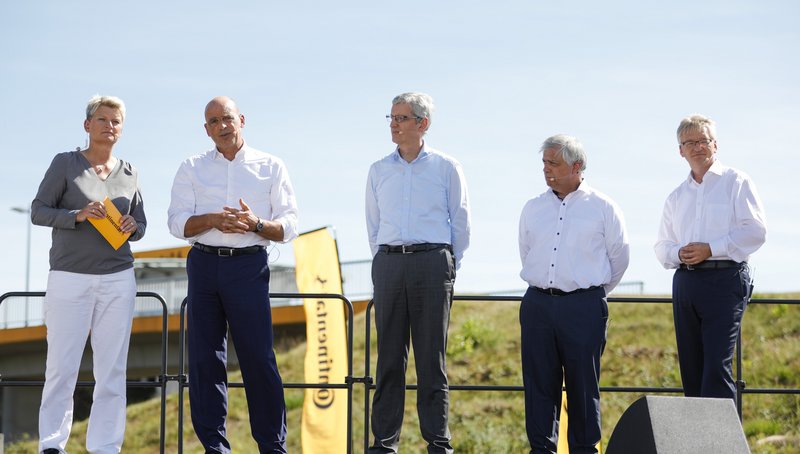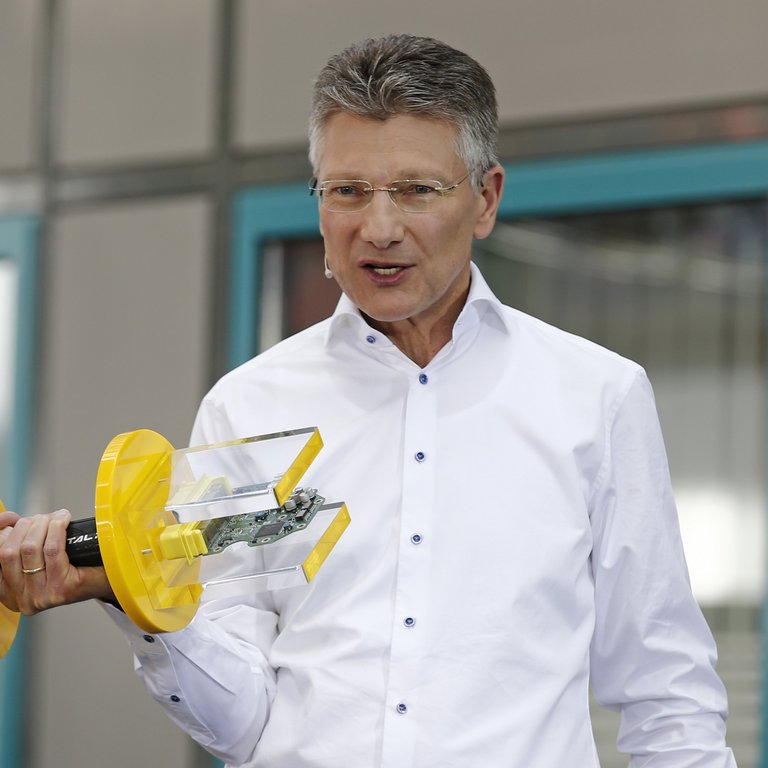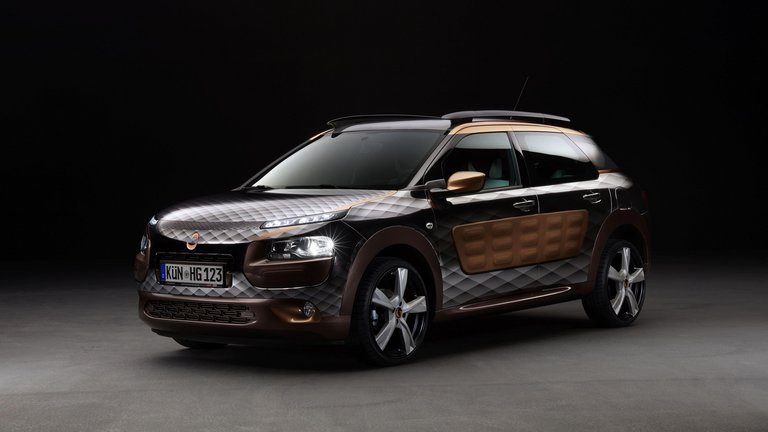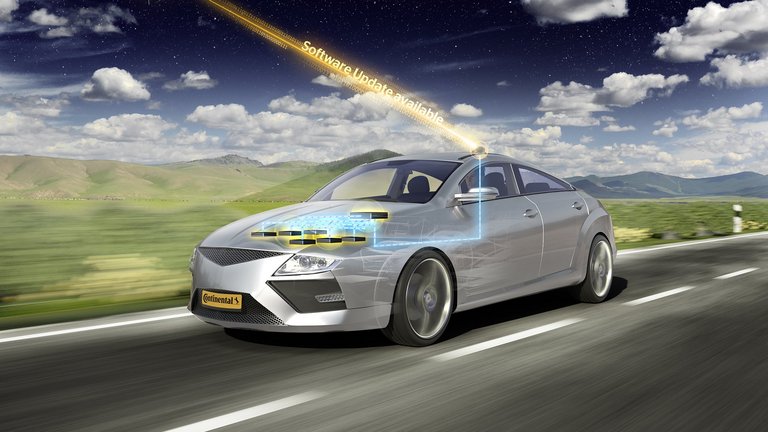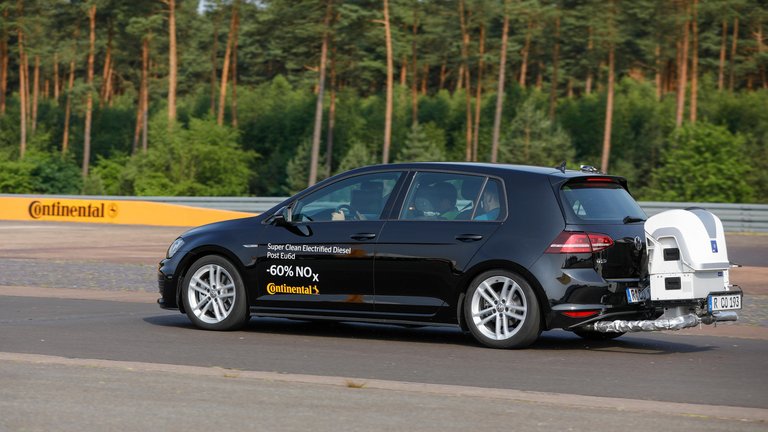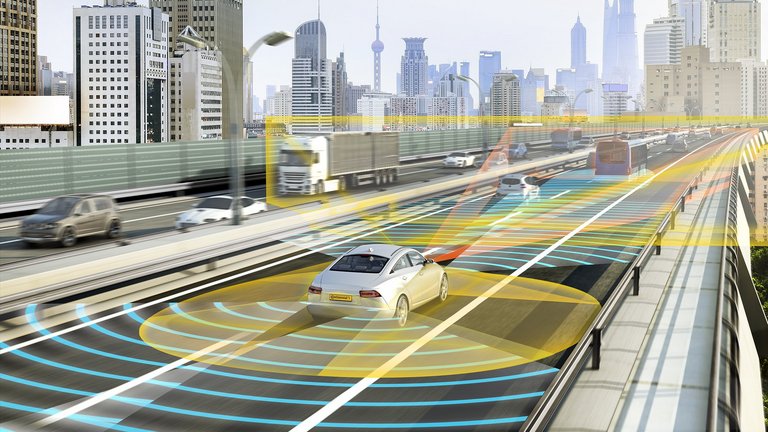Safe, Clean, Intelligent: Only by Working Together Can Industry and Politicians Pave the Way for New Mobility
- Dr. Degenhart in the run-up to the IAA 2017: “Clean air and environmental protection are possible only with affordable technologies.”
- The slogan of the IAA 2017 is “Making Mobility A Great Place To Live”
- Technology company focuses on electrification, automated driving and connectivity for an individual living space on wheels
Hanover, June 21, 2017. In the run-up to the International Motor Show Germany (IAA) 2017, technology company Continental is demonstrating the challenges and opportunities of individual mobility in the future. “Our industries and markets are currently going through a fundamental change. This transcends established technologies and tried-and-tested business models. Electrification, automation and digitalization: The interior of cars as we know them will be completely different in 10 to 15 years,” says Continental Executive Board chairman Dr. Elmar Degenhart with certainty. “We are tackling this challenge with courage and drive. From more than 146 years of experience, we know that new technologies are successful only if they are not just reliable, but also affordable, accepted by markets and society, as well as politically endorsed and permitted by law,” emphasized Degenhart during a press conference in Hanover at a technology preview of the upcoming IAA. “We are therefore convinced that only by working together and through mutual agreement can industry and politicians pave the way for electrified, automated and connected mobility and therefore for cleaner air and accident-free, comfortable driving.”
Degenhart used the amended road traffic act adopted by the German Bundestag and Bundesrat at the start of May 2017 as a positive example of this collaborative method of working. “A realistic political framework that is developed early on really helps our industry to maintain its position as the leading supplier of state-of-the-art technology on the global market,” said Degenhart, who, in this context, also acknowledged the guidelines on automated driving that were published just the day before. “The ethics commission’s report that was published yesterday meets our need for pioneering regulations for our programmers and developers in this field. It is important to take the next step to transfer the relevant guidelines into the existing national and international legal framework.”
However, Degenhart also expressed criticism of the one-sided promotion of individual technologies. “The emission limits specified are extremely challenging. Consequently, car manufacturers are focusing on the large-scale expansion of electromobility. However, purely electric vehicles are still far too expensive.” From Continental’s point of view, purchase incentives are currently not helping with this. “This is because in the case of pure electric mobility, the breakthrough onto the market will be achieved only with greater range and lower acquisition costs. This breakthrough is not expected before 2023,” Degenhart added. In 2025, Continental therefore expects a market share of around only 10 percent for all-electric drive systems and almost 30 percent for the combination of electric drive systems and combustion engines (known as hybrid drives). “Clean air and environmental protection are possible only with affordable technologies,” said the CEO. “Emission regulations will do too little to protect the climate if new technologies are not accepted widely on the market.”
Drive systems must be both efficient and affordable
Continental is therefore prioritizing the development of highly efficient drive systems and technologies that are affordable – everywhere and regardless of vehicle class. As a result of the increasing demand for mobility, this means that the combustion drive hasn’t actually yet reached its peak. In order to meet emission targets, we are making it even more efficient using, for example, exhaust-gas aftertreatment and particularly with our “people’s hybrid.” This 48-volt technology is a provisional solution. It relieves the burden on the internal combustion engine and can be integrated into vehicles with either gas or diesel engines,” explained Degenhart. “The proven fuel savings are around 20 percent in real-life urban traffic.
“In the run-up to the IAA, we are also presenting a diesel production vehicle certified to Euro 6, as modified by our experts. We are therefore reducing nitrogen-oxide emissions by more than 60 percent in real-life road tests and keeping well below the legal limits.”
The IAA 2017 slogan: “Making Mobility a Great Place to Live”
The technology company is appearing at the IAA under the slogan “Making Mobility a Great Place to Live.” Continental is showcasing solutions for electrification, automated driving and connectivity in mobility. Using this mobility will enrich living spaces for people in the future. In the lead up to the IAA 2017, Continental is using several concept cars to demonstrate some fascinating ideas for the future of mobility.
“In the 20th century, our cities and living spaces were dominated by the needs of car traffic. In the 21st century, the needs of people have once again become the focus of mobility. This can be seen in the vehicles of the future, in which offices and living rooms merge into an innovative and completely individual living space on wheels. With our solutions, we want to show people how intelligent and connected mobility can open up brand-new design opportunities for them,” said Continental’s Executive Board chairman.
Among the ideas and products that Continental will present at the International Motor Show Germany in Frankfurt am Main in September are the “Super Clean Electrified Diesel” clean diesel drive, the “AllCharge” universal charging system, the “e-horizon weather” real-time weather service for the latest weather alerts in the car, the “CUbE” robo-taxi for autonomous driving in cities, the “Ac2ated Sound” sound system without loudspeakers, the “New Wheel Concept” for new, lighter wheels for electric cars, and the multi-award-winning “PremiumContact 6” tires.
Particular focus on automated driving and vehicle connectivity
One of the streams of innovation from the worldwide collaboration of more than 32,000 Continental engineers and software developers is automated driving. With the Cruising Chauffeur, Continental provides a system that supports drivers and allows them to relax during their daily commute. There is also an increasingly higher degree of automation in parking operations. With its technologies for robo-taxis, Continental is paving the way at the IAA for forms of vehicles for future urban mobility. Connectivity plays a vital role on the road toward automated driving. “Thanks to seamlessly connected mobility, communication between people will no longer be interrupted. As a result, mobility is becoming an additional living space, in which new mobility services are opening up a new multi-billion market that we are determined to break into,” said Degenhart.
Continental connected the first vehicles to the Internet back in 1996, and in the meantime, there are now more than 30 million of them. By 2020, around 250 million connected vehicles will be on the roads across the world. “Where vehicle connectivity was once simply an added bonus, it is now becoming a key technology for intelligent mobility of the future. This is why we at Continental are focusing our efforts on holistic connectivity to create a seamless online connection and transform the entire vehicle into an open system,” explained Degenhart. Together with Carnegie Technologies, Continental presents a solution that enables seamless and disruption-free transition between different wireless networks (mobile telephony, Wi-Fi or satellite systems). It can also combine data connections, for example, the mobile end devices of car occupants, therefore adding to transmission capacities.
